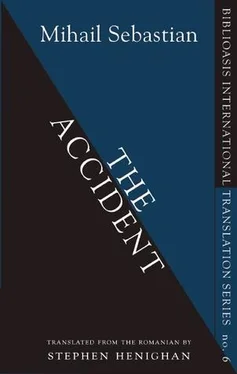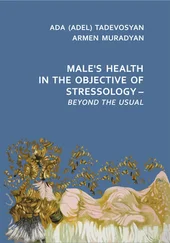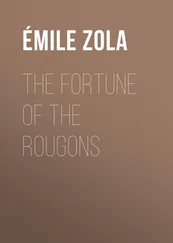In the morning the gates seemed to open and, through the torn tissue of clouds, as though via dozens of moving windows, visions of another world, another season, chased each other through the haze. Yet towards evening, as though the mountains, tiring of this turmoil, had surrendered to the victorious winter, the mist fell again, the clouds became heavy, the forest smoked feebly…
On the third night everything suddenly fell calm, as tempests fall calm on the sea.
Paul awoke in the darkness and listened.
“What’s happened?”
“I’m not sure. Listen for yourself.”
The nocturnal silence had a rustling quality, as though the forest had been rejuvenated. The cabin seemed to be as light as a ship freed from an ice floe.
Paul went to the window and opened it. A deep blue sky with moist stars, an incomparably clear, incomparably simple, spring sky, floated over the snowbound forest. Everything in the night was blue — the firs, the snow, the cliffs. An invisible moon, possibly secluded somewhere behind the cabin, gave the distant mountains a weak metallic glow; their silhouettes, too, were blue, but with phosphorescent, snow-white summits.
Paul remained next to the window with an intoxicated feeling. Nora called him a few times, but he didn’t reply.
The cold night air was sharp but not freezing. It carried a moist smell, an aroma of roots and damp herbs.
“It’s like awaking from a dream,” Paul said.
He bent towards the window to feel the breeze from that impossible spring night on his forehead.
In full sunlight, Postăvar was unrecognizable. A large amphitheatre encircled its green and white forests. The light was cold, pure, resonant. Even on the most distant lines of mountains, everything stood out with exaggerated precision as though in an infinite display window. Looking between the pine trees from Gunther’s cabin, he could make out minuscule houses, black roofs, narrow paths winding through the bush-like rivers far away in the valley. It was Predeal, a Predeal coloured with expanses of mauve and blue. The Bucegi Mountains no longer had their lunar glow, their night-time transparency. They looked like mountains made out of chalk, meticulously sculpted, with delicate, precise peaks.
On the opposite slope, the Burzenland unfurled like a relief model. The Făgăraş Mountains and the peaks around Cincu caught the plain, with its towns, trails, forests, tiny yet clearly delineated when seen from high above, within their violet circle, as though viewed through a spyglass that shrank images without distorting them. The most distant silhouettes — houses, trees or cliffs
— retained their distinctive contours in daylight.
Nora and Paul spent all of their time on their skis. Their old routes became new and full of surprises. Each spot on the mountain, each hour of the day, opened onto an unknown landscape. The snow itself seemed to change its consistency in the sunlight. It was light, powdery, dry snow, which their skis glided across without any resistence, sensitive to the slightest pressure. Turns and stops happened on their own, almost before they had begun the manoeuvre. Everything worked with delightful ease in that light that lent transparency to even the heaviest objects.
The harshest sounds, the most distant echoes, became audible in the woods with a kind of musical vibration. The whole mountain was like a tuning fork or a violin. The blows of axe-blades or the squelched falling of trees emanated as though from the depths of the earth, only to grow clearer as they entered the warm morning air. A few times, a barely discernible breeze passed through the forest, and beneath this breath of life the pine trees looked like sailing ships becalmed on the sea. Only at the tops of the ridges was the air sharper; the wind’s gusting raised the snow, spraying it up in small artesian wells. From the summit of Postăvar, the lines of the Bucegi Mountains stood out like silver craters, each crowned by a halo of fine powder.
They came back to the cabin tired out from too much sunlight, intoxicated from endless runs on their skis. Gunther, who couldn’t do anything more demanding than a light outing, normally waited for them at the SKV chalet, where his appearance always aroused the same whispers and questions. But now the boy accepted with indifference, even with an ironic pleasure, all these stares that peeped out from the windows as soon as he approached the Saxons’ chalet. The sun lent him a feverish, exuberant joy, animated by movement. He walked around bare-headed in his sleeveless summer shirt, open at the neck, and ran through the snow with his arms spread and his face to the sun. Faffner, older and more skeptical, followed him without haste.
“Don’t you want to awake from the dream?” Gunther asked him, pulling on his ear. “Don’t you see that spring’s come?”
The dog lifted its head for a moment, its eyes narrowing in the morning light, then with its old sleepy indolence, it returned to its winter slumber.
“Faffner’s wiser than us,” Nora said. “He knows better than to believe in spring too soon.”
Gunther’s slightly exaggerated delight worried her. The boy seemed to think he’d put the winter behind him. His delight was a kind of victorious satisfaction, as though the aim he had set himself — to make it to the month of March in order to be able to confront the Grodeck family — had been reached and his effort to live until then had been fulfilled.
Nora wished she could temper that excessive happiness.
Standing between Paul and Gunther, both raving about the sunlight, she tried to remain calm. She didn’t believe in great, dazzling, miraculous happiness.
She believed more in soothing, durable, settled feelings.
“Isn’t that right, Faffner?”
She sensed in Faffner an ally, a friend, a source of wisdom.
It was two or three in the afternoon when the sunlight became scorching. Paul no longer wanted to go inside. He lay down on the steps of the cabin with his eyes closed and his arms spread. A warm red light crossed and recrossed his eyelids, bringing back his hours on the beach at Balcic. He had the sensation that he was naked in the sunlight. He could feel his temples throbbing; his ears were deafened by a confused tumult of cowries. He forgot where he was and how long he had been here. It seemed to him as though he had always been wrapped in this luminous torpor and always would be. He had no memories, no thoughts. Not a single image passed before his closed eyes, not even his own image. He barely felt the heat on his arms, his sunburned cheeks; the light seemed to pass through him, through his pores, through the blood in his veins, right to the arteries, right to his heart.
Nora came alongside him to wake him without raising her voice. He heard her as though she were approaching, felt her as though her light hands were on his face and his hair, but all of these vague sensations remained beyond the boundaries of his intimate circle of light.
The evenings had the aroma of resin, of tree bark, of tender leaves. The pine trees became translucent beneath the white moon. The day’s bright colours — like violet, white or red tinsel — faded away after a last intense kindling at sunset.
Against the white background of the snowy Bucegi Mountains, the moon rose in an unreal shade of yellow, a warm powerful yellow that did not seem to be part of this winter evening landscape. Later, when it regained its spectral light, the ridges, enlarged beneath the moonlight, looked as blue as pristine lakes.
Nora and Paul waited for the sunset up on the summit of Postăvar. They stayed there until late, until the night was black. Scattered lights came on in the Timiş Valley. The automobile headlights advancing along the road to Braşov stood out like points of fire; farther away, like a bracelet of glinting stones, they saw Râşnov. The forests rustled without wind, without bending, with a murmur of new life beneath the snow. The rocks had a welcoming smell of fresh earth.
Читать дальше












